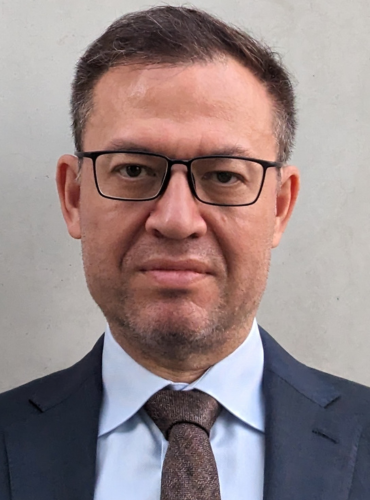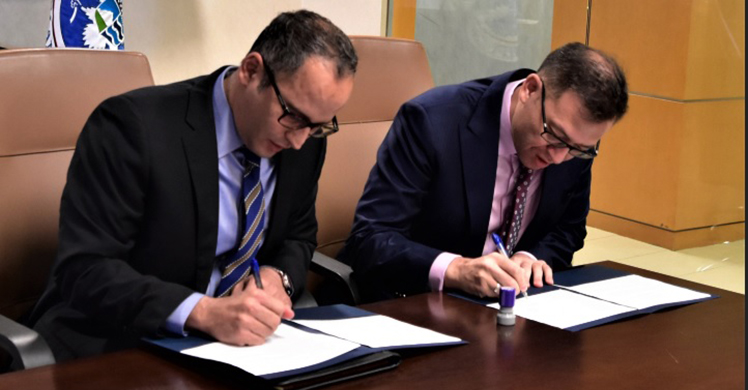Understanding how corporations and industries work and are financed is fundamental to developing impactful strategies that will change global value chains to become more sustainable.

Photo courtesy of Duncan Jepson
When most people think about sustainability, their first thoughts probably don’t involve anti-money laundering, anti-terrorist financing, or working with the U.S. Immigration and Customs Enforcement’s (ICE) Global Trade Investigations Division to combat forced labor in global commerce. Then again, Duncan Jepson is not “most people.” As a faculty member for the Online Master of Sustainability Management program, Jepson brings a wealth of experience from a distinguished career in corporate law, finance, and global supply chains. He was the Head of Legal for BNY Mellon Investment Management in Hong Kong, Regional General Counsel and Head of Compliance at ING Investment Management Asia Pacific and oversaw a supply chain consultancy in the United Kingdom and China.
Jepson’s impressive career trajectory is only surpassed by his humanitarian pursuits. Before becoming an activist, Jepson was also a filmmaker, with five features, including one for Jackie Chan’s production company and various documentaries for NatGeo and Discovery to his name, as a medium to empower change, but after a decade he realized that “if you want to be involved in changing the world, then [you must] go out and change it. Making films is a very indirect, expensive and ineffective means of changing things.” And go out and change he did. As the Founder and Managing Director of Liberty Shared, an NGO dedicated to pursuing systematic change, Jepson battled human and wildlife trafficking and also developed various platforms, such as Freedom Collaborative, an global online community tackling trafficking. He was also director of Fair Rubber e.V. and continues to be on the board of the Alliance to Counter Crime Online (ACCO).
Now, he brings all these diverse experiences to teaching sustainability management. As he states, “I have been both on the side of corporations and in opposition, two sides of the same coin. My experience of working on forced labor issues involved thinking about a range legal and financial issues, particularly about governance, criminality and justice. It important to discuss the issues of equity and justice with students!”
Below, Professor Jepson shares his experiences combatting trafficking, his partnership with Homeland Security Investigations on a groundbreaking investigation, and the need to continuously adapt, learn and collaborate to avoid falling victim to ignorance and echo chambers.
Please tell us about the journey that led you to found Liberty Shared and your motivation behind it.
In the 2000s, I was working as a corporate lawyer in charge of the Asia Pacific region for a global investment management business and a part of the work involved anti-money laundering actions, in particular, anti-terrorist financing. I saw that the anti-money laundering infrastructure created from the obligations under the Patriot Act offered a means of combatting human trafficking and I wanted to pursue this strategy in practice. I started in 2009, and it took roughly a decade, but it is now standard anti-money laundering procedure in the financial industry to identify and prevent transactions relating to human trafficking causing a disruption to the flow of illicit money. You can read more here.
Building on your achievements in anti-money laundering and combatting human trafficking, your investigation into forced labor within a Fortune 500 company’s supply chain was groundbreaking. How did you approach uncovering such hidden practices, and what were the key findings?
Yes, the investigation and settlement by Goodyear Tire and Rubber Co. and Goodyear Malaysia Berhad with the U.S. Department of Justice was the first ever criminal investigation into a Fortune 500 company. Over the years, we developed a strong global network of partners who were speaking to victims. We received information from workers and developed the leads until law enforcement could become involved. At the same time, we developed a “relationship” with Homeland Security Investigations.
Do you have any guiding principles that inform how you approach your work?
To remember we live and work in complex ecosystems, so we need to continually learn and adapt. That we struggle with constant ignorance, an asymmetry of information, when we make decisions. And that we are all subject to our own echo chamber, a bounded rationality, so we need to frame reality from others’ perspectives whether other people or nature.
You’ve certainly had to engage with various perspectives, having held roles in both legal and financial sectors. How do you bridge the gap between humanitarian pursuits and corporate environments when advocating for sustainability?
Understanding how corporations and industries work and are financed is fundamental to developing impactful strategies that will change global value chains to become more sustainable. Having a background in corporate crime internal investigation helps enormously in understanding how corporate governance fails or is subverted to create opportunities for misappropriate, abuse and exploitation.
Could you share a pivotal moment or realization that inspired you to transition from your previous roles to educating future sustainability leaders?
I think it is really that as one gets older you see the need to share experiences (good and bad) and knowledge with the next generation, so they don’t waste time repeating the same mistakes and make improvements to society and the environment which is so desperately needed. Time is very short!
Given your extensive experience, how do you incorporate real-world examples and challenges into your sustainability curriculum?
As many students are already working in the field or seeking a position, it is important to lead everything we study back to practice. Students want to know practical application for their professional work and personal moral positions. There is plenty of opportunity during our lessons to discuss my own experiences, such as those in C-suite level management, issues around creation of corporate disclosure, human rights and environmental crime investigations.
Is there any particular advice you would give to students pursuing a career in sustainability management?
Come to the subject with an open mind, a deep curiosity and be critical in your thinking. Both in study and in practice, you need to be able to structure an argument. Collaboration is, of course, the preferred way to address the issues we are facing, but many parties are not able or willing to compromise and we have to resolve that inherent tension.
What excites you about teaching students at USC Dornsife?
I really like that many of the students are working in the field and that others want to be – it makes for great discussion. Students also bring their own areas of focus from their studies, research, and practice which is fascinating for me and the fellow students to learn.
Lastly, can you share how sustainability management has changed over your tenure in the industry? What change do you predict for the industry in the future?
The main change, which I find very exciting, is the introduction of a new generation of practitioners who I think have a much more nuanced sensibilities about society, nature and the planet. They are prepared to act on their principles in a manner that previous generations have not, and I am hopeful about how they might change society, policies, and the economy.
Learn more about the Online Master of Sustainability Management program.




